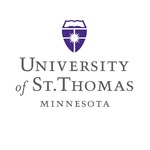Otto Bremer Trust has committed $100,000 and the F.R. Bigelow Foundation has committed $50,000 to the Partnership's Nursing Initiative
CareerStat Recognizes Fairview's Workforce Commitment

Fairview CEO David Murphy and System Director of Talent Acquisition Laura BeethOn October 31, CareerStat, a program of the National Fund for Workforce Solutions, recognized Fairview Health Service’s extensive investment in its frontline health care workforce. MSPWin Director Bryan Lindsley noted that frontline workers represent 50% of the total health care workforce. Laura Beeth recognized the Partnership’s role as a coalition of medical and educational institutions along the Light Rail in developing strategies for people who live in our community and want to work and get an education here as well. The Partnership focuses on “how to mirror the community in the workforce,” Beeth noted.
CareerStat has created a guide for employers with an overview of investment practices for investing in frontline health care workers to achieve a better engaged, better qualified workforce that correlates directly to patients’ experiences. Entry level frontline jobs represent 4 in 10 open health care positions in the country. CareerStat applauded Fairview for leading many of the best practices it has outlined as most effective, including making higher learning accessible (e.g., GED or post-secondary degree program) and providing opportunities for advancement and exploration. Fairview has also excelled at integrating these best practices with its business operations and at leveraging resources to support its efforts, including involvement in the Partnership and seeking outside funding.
Fairview CEO David Murphy noted that Fairview believes in hiring locally, and that its Riverside campus has the greatest diversity of any of its campuses. “We’re in the business of improving community health,” said Murphy. “We know that we deliver better health care when our caregivers reflect our patients and the community.”
St. Thomas' 2-Year College to Benefit Low-Income Students

St. Thomas will begin offering a two-year program through its new Dougherty Family College to provide a pathway for students from disadvantaged backgrounds to four-year degrees.
150 students will pay as little as $1,000 per year to earn a two-year associates degree and have the opportunity to transfer into a four-year program. Students will be assessed for admission using different standards from those applied to traditional students, and will be provided culturally responsive instruction during their program.
